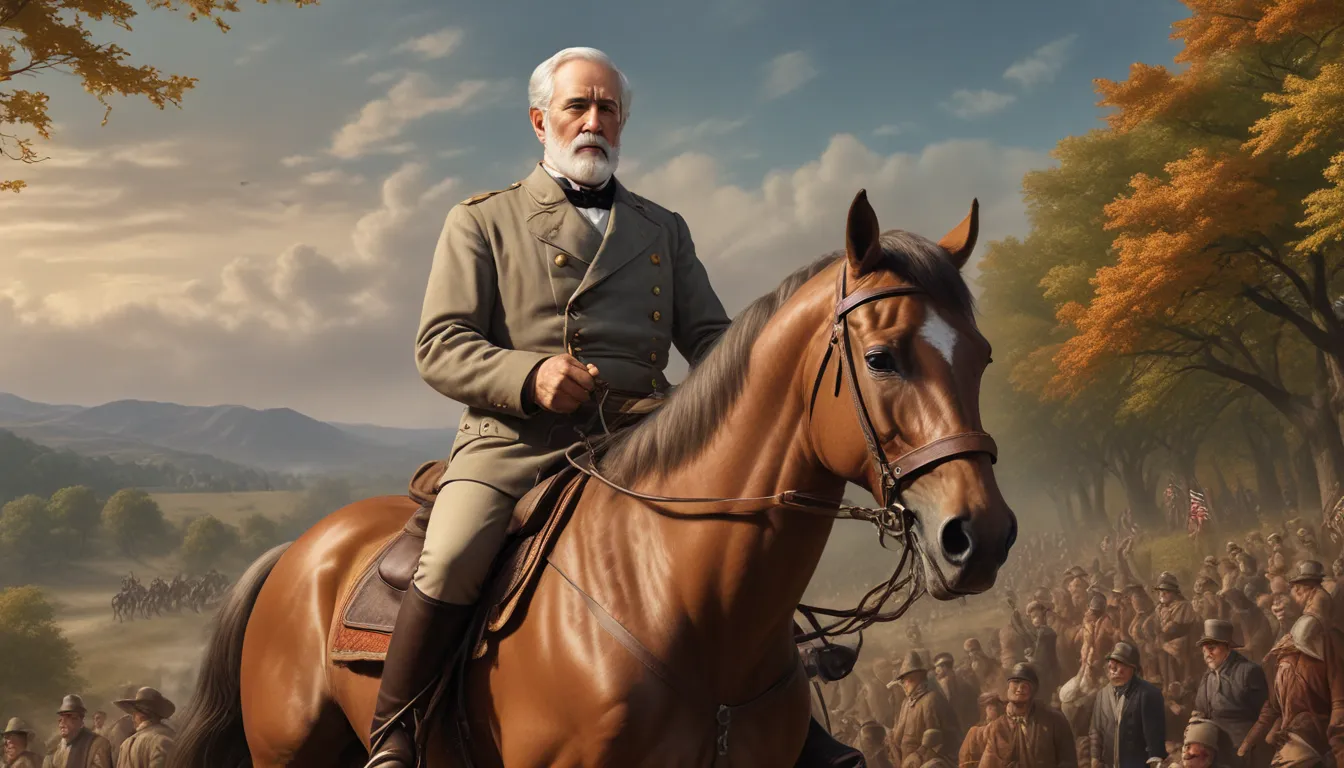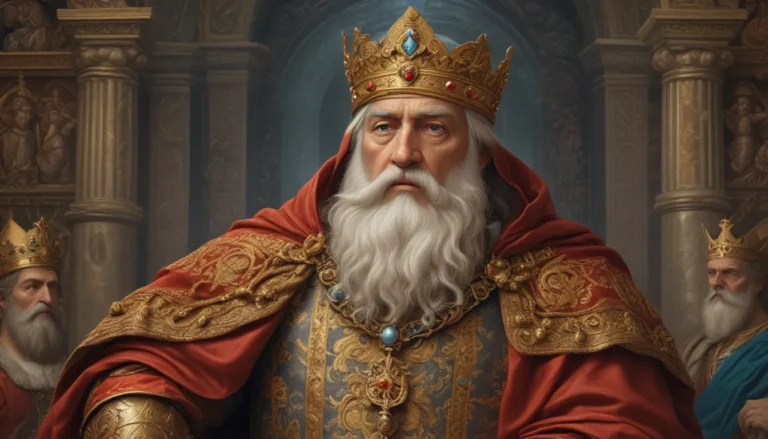The images in our articles may not match the content exactly. They are used to grab your attention, not to show the exact details in the text. The images complement the text but do not replace it.
Have you ever been curious about the man behind the historic figure depicted in Civil War paintings? Robert E. Lee, a renowned personality shrouded in both admiration and controversy, has a multifaceted story that goes beyond the battlefield. Let’s set aside the typical debates and dive into some lesser-known, fascinating tidbits about this complex character. From his love for animals to his pivotal role in shaping American history, buckle up for an enlightening journey through 18 intriguing Robert E. Lee fun facts that will provide a deeper understanding of this iconic figure.
Unveiling Robert E. Lee: A Glimpse into His Early Life
Robert E. Lee, a significant name in American history, was born on January 19, 1807, in Stratford Hall, Virginia. Despite coming from a prestigious lineage with connections to the signers of the Declaration of Independence, Lee’s early life was not without its challenges. Lee’s father, “Light-Horse Harry” Lee, a hero of the Revolutionary War, instilled in Robert a strong sense of duty and honor towards his country. This upbringing would shape Lee’s character and decisions in the years to come.
Lee excelled academically, particularly in mathematics, paving his way to the United States Military Academy at West Point. His prowess in his studies and dedication to his education set the foundation for a remarkable military career that would unfold in the years ahead.
The West Point Years and Lee’s Military Journey
In 1825, Robert E. Lee embarked on his journey at West Point, graduating second in his class without a single demerit, a testament to his discipline and unwavering dedication to his pursuits. His time at West Point marked the beginning of a distinguished military career, where he served as an engineer in various assignments, honing his skills and leadership abilities.
Lee’s first taste of combat came during the Mexican-American War, where his reconnaissance missions earned him recognition from his peers and superiors. His strategic acumen and bravery in the face of adversity laid the groundwork for his future endeavors on the battlefield.
The Controversial Role of Robert E. Lee in the Civil War
Robert E. Lee’s most notable and controversial role came during the American Civil War, where he served as the commander of the Confederate States Army. Despite being offered command of the Union forces, Lee’s loyalty to Virginia, which had seceded from the Union, led him to decline the offer. His allegiance to his home state outweighed his devotion to the national government, setting the stage for his pivotal role in the conflict.
Lee’s decisions and actions during the Civil War have sparked ongoing debates and discussions about his legacy. His strategic prowess on the battlefield, particularly in battles like Antietam and Gettysburg, continues to be studied in military academies worldwide, showcasing the lasting impact of his military tactics and leadership.
Post-War Contributions and Lee’s Legacy
After the Civil War, Robert E. Lee’s life took a different trajectory as he focused on education and reconciliation. He assumed the presidency of Washington College in Lexington, Virginia, a role that would come to symbolize his efforts at healing the wounds of war and educating young men to rebuild the nation. Washington College was later renamed Washington and Lee University in his honor, underscoring his lasting impact on the institution.
Beyond his military and post-war contributions, several lesser-known facts about Robert E. Lee shed light on his multifaceted character. From his love for animals and gardening to his religious convictions and opposition to slavery, these aspects of Lee’s life paint a fuller picture of the man behind the historical figure.
Delving Deeper into the Legacy of Robert E. Lee
Robert E. Lee’s story is a rich tapestry of military brilliance, personal honor, and the intricate history of a divided nation. Through these 18 fun facts, we’ve gained insight into not just the general who commanded the Confederate Army but also the complexities of the man himself. Lee’s legacy challenges us to reflect on the nuances of leadership and the enduring impact of his decisions on American soil.
As we navigate through history and grapple with the complexities of the past, let us carry with us the lessons learned from Robert E. Lee’s life. His commitment to duty, humility, and the intricate weave of our shared history serve as poignant reminders of the enduring legacy of this iconic figure.
Your Questions Answered
Q: What was Robert E. Lee known for?
A: Lee gained fame as a Confederate general during the American Civil War, known for his leadership in major battles and as a symbol of the South’s fight during the conflict.
Q: Did Lee have any unique hobbies or interests?
A: Yes, Lee had a passion for gardening and reading, finding solace in nature and literature amidst the demands of military life.
Q: What impact did Lee’s military strategies have on modern tactics?
A: Lee’s strategic brilliance, particularly in his use of terrain and defensive tactics, continues to influence military thought and strategy today, showcasing his enduring legacy in the realm of military studies.
Q: Was there a particular reason Lee chose to join the Confederate Army?
A: Lee’s decision was heavily influenced by his loyalty to Virginia, his home state. Despite his prior service in the U.S. Army, Lee felt compelled to support Virginia during its secession from the Union, highlighting the era’s strong sense of state allegiance.
In Closing
Robert E. Lee’s legacy transcends the pages of history books, weaving together the threads of military genius, personal integrity, and the complexities of a nation torn asunder. As we delve into the life and times of this iconic figure, let us reflect on the lessons learned from his journey. From his unwavering sense of duty to his commitment to reconciliation, Robert E. Lee’s story reminds us of the enduring importance of humility, honor, and the intricate tapestry of our shared history.






